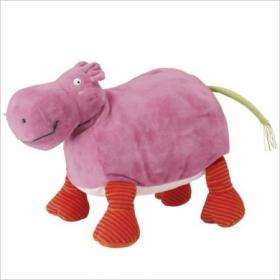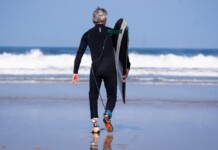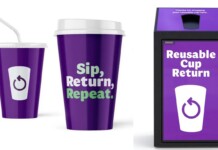 Thanks to IKEA and its customers, scores of projects aimed at improving the education of school children around the world will benefit from a holiday donation of €5 million, almost $7 million, the United Nations Children’s Fund (UNICEF) announced last week.
Thanks to IKEA and its customers, scores of projects aimed at improving the education of school children around the world will benefit from a holiday donation of €5 million, almost $7 million, the United Nations Children’s Fund (UNICEF) announced last week.
As part of its fourth annual “€1 is a fortune” campaign, IKEA will donates €1 to UNICEF and Save the Children for every stuffed animal it sells. So far, the Swedish retail giant has sold some 4.1 million soft toys.
IKEA’s campaign, which kicked off in November and runs until 24 December, is close to reaching its target of selling 5 million plush animals from its 258 stores worldwide, priced from $1.49 to $19.99.
Proceeds from this year’s campaign will benefit UNICEF school improvement programs in China, the former Yugoslav Republic of Macedonia, Moldova, Russia, Sierra Leone, South Africa, Tajikistan, Uzbekistan and Viet Nam.
In Tajikistan, for example, funds will be used to establish 20 “child-friendly” schools in four districts, supplying some 2,000 sets of school furniture and creating 210 reading areas.
The projects are aimed at helping children feel safe, receive a good quality education, have access to key services like water and sanitation, as well as learn and grow in an inclusive, gender-sensitive environment.
Through previous year’s soft toy campaigns UNICEF has received €8 million (over $11 million) supporting 22 projects in 17 countries in Africa, Asia and Europe.
Last year, over €4 million (around $5.5 million) was divided between UNICEF and Save the Children. The proceeds were slated for UNICEF projects in Albania, Bangladesh, China, Côte d’Ivoire, India, Pakistan, Russia, Sierra Leone and Viet Nam. An Albanian initiative planned to open libraries in some 850 schools, teaching more than 200,000 school children across the small European country.
“Despite the current global economic downturn that has impacted both private enterprises and individual families alike, this pledge reflects IKEA’s belief that protecting children and securing their rights is an absolute priority and an important investment in the future,” said UNICEF Deputy Executive Director Hilde F. Johnson.



















